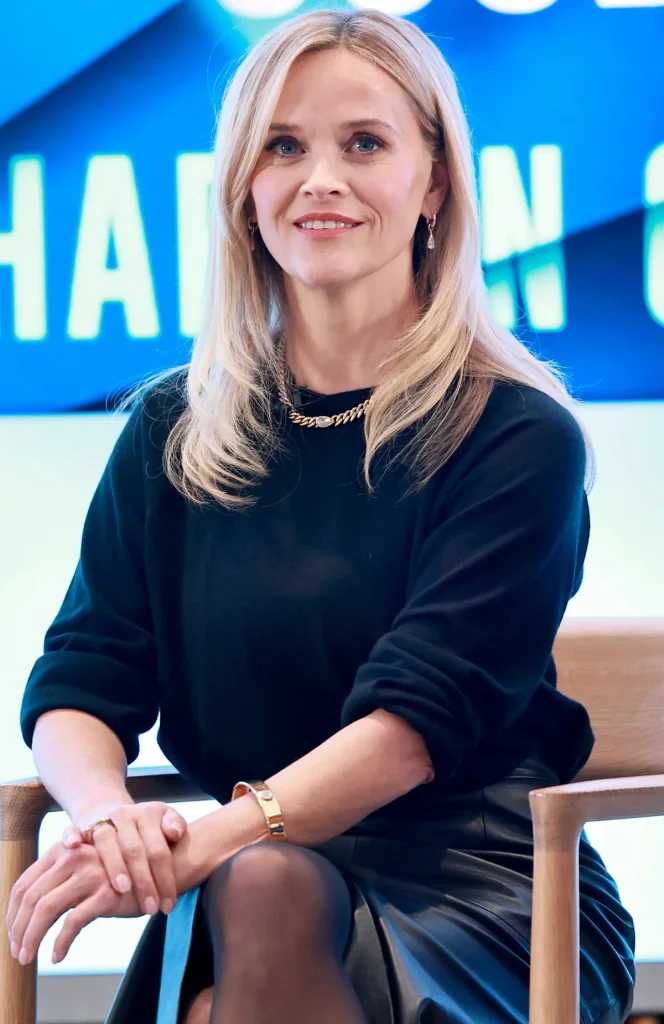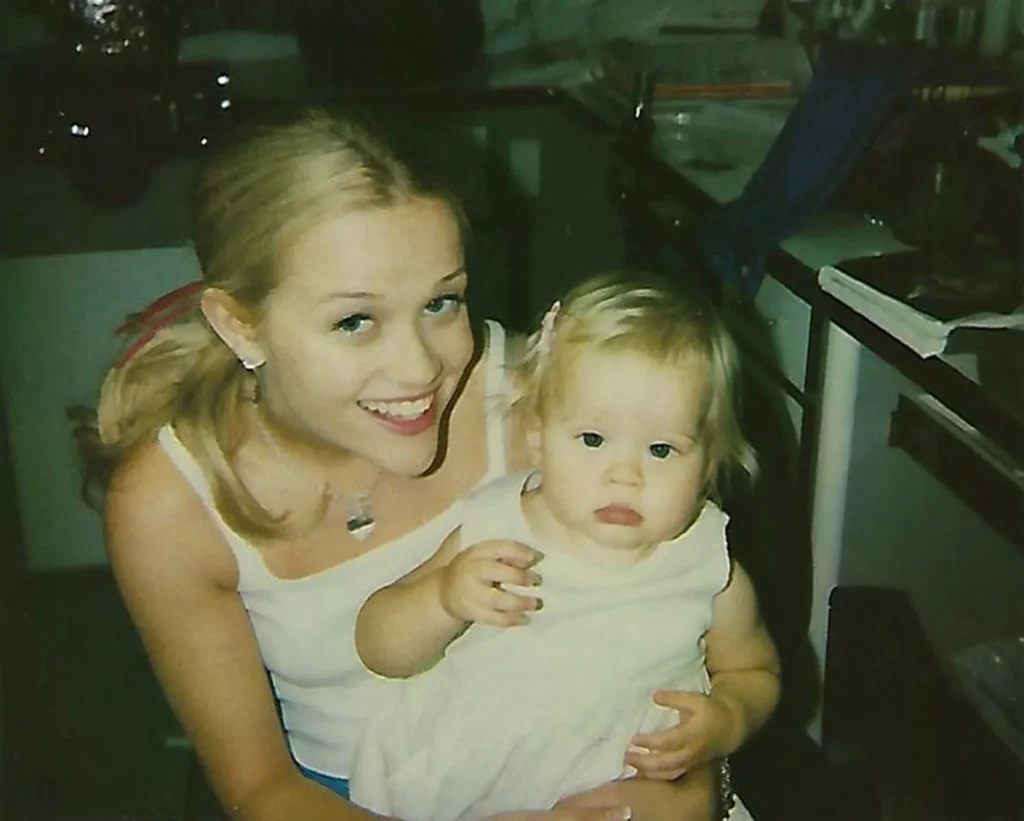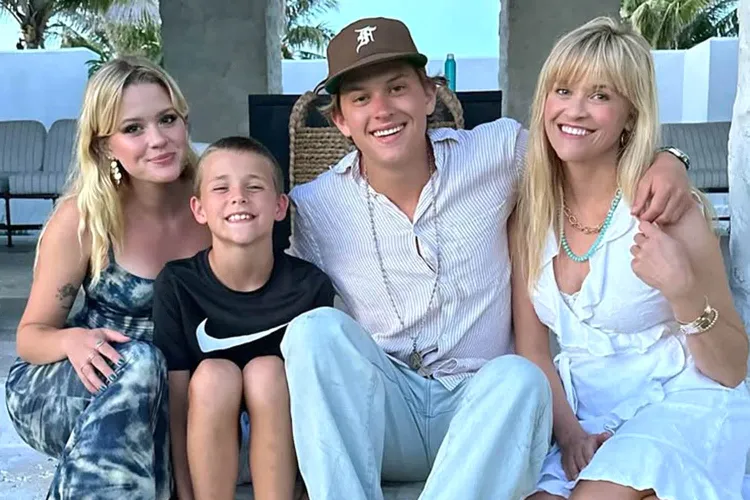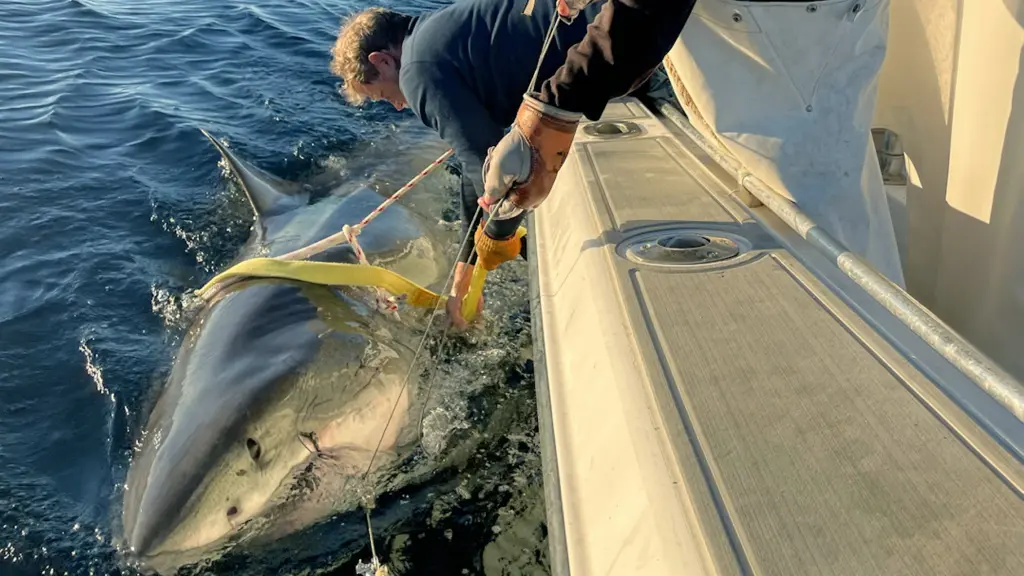Reese Witherspoon Reveals Her Struggle with Postpartum Depression as a Young Mom — and Why She’s Speaking Out to Help Other Women
Reese Witherspoon has spent decades embodying strength, confidence, and grace on-screen — but behind her radiant smile, the award-winning actress faced one of the most difficult chapters of her life in silence. In a rare and emotional revelation, Witherspoon opened up about her battle with postpartum depression, describing it as a period that changed her not just as a mother, but as a woman learning to navigate her own mental health in an industry that rarely allows vulnerability.

In her own words, she remembers feeling utterly lost. “It’s hard being a young mom,” she said during a recent interview, reflecting on the early years after giving birth to her first child. “I had the connections and the means to get to a doctor, a mental-health specialist, but a lot of people don’t. They struggle on their own and hide it.” That admission — raw, honest, and deeply human — captures a side of Witherspoon rarely seen in Hollywood. It’s a reminder that even women who appear to have everything can quietly suffer through the challenges of new motherhood.
Reese, now a mother of three, recalls being completely unprepared for what she would experience after childbirth. “Nobody told me how hard it would be,” she said. “Everyone talks about the joy of having a baby — and yes, there’s love, there’s gratitude, there’s wonder — but there’s also fear, confusion, and a deep exhaustion that can make you feel like you’re drowning.” Her words echo the stories of countless women who, despite being surrounded by support, still find themselves trapped in an invisible fog.
For Witherspoon, the warning signs came early. She described an overwhelming sense of sadness that wouldn’t go away — a heavy, unexplainable cloud over what was supposed to be one of the happiest times of her life. “I cried all the time,” she admitted. “I couldn’t understand why. I had this beautiful baby, a career I loved, and yet I felt broken.” It was only after speaking with a doctor that she realized she was experiencing postpartum depression, a condition that affects millions of women each year but remains underdiagnosed and often misunderstood.

Her openness about the experience has struck a chord with mothers everywhere. Witherspoon’s honesty shines light on a topic long considered taboo, even among women in Hollywood. The actress admitted that part of her hesitation to seek help came from the fear of judgment — the unspoken pressure for mothers to appear perfect, to do it all, and to never show cracks. “I was young, and I didn’t want anyone to think I couldn’t handle it,” she said. “But that silence only made it worse.”
Reese was in her early twenties when she welcomed her first child, daughter Ava, with then-husband Ryan Phillippe. It was a time when her career was skyrocketing — coming off hits like Election and Legally Blonde — but her personal life was a whirlwind of sleepless nights and emotional turbulence. “I was juggling a baby, scripts, and a public image. It felt like I had to be everything at once — the perfect mom, the perfect actress, the perfect wife,” she explained. “And when I couldn’t live up to that, I felt like I was failing.”
Her mother, Betty, who was a nurse, had once warned her that postpartum depression could be hereditary. “My mom told me it runs in families,” Reese shared. “She said, ‘If it happens to you, don’t be ashamed. It’s just chemistry. It’s not your fault.’” That advice stuck with her, but even then, it took time for her to seek help. Like many young mothers, she thought she could simply “push through” it. “I kept telling myself I’d be fine,” she said. “But you can’t heal what you won’t acknowledge.”

Over time, she began to understand that healing required both medical and emotional support. Therapy, self-reflection, and honesty with those closest to her became her path forward. It wasn’t an overnight transformation, but Witherspoon learned how to ask for help — something she now encourages every new mother to do. “I wish women didn’t feel so much guilt,” she said. “We think needing help means we’re weak, but it’s actually the bravest thing you can do.”
Her experience reshaped how she views motherhood and empathy. “I look back now, and I just want to hug that version of myself,” Reese said. “She was doing her best with what she knew.” That compassion has since translated into how she raises her own children — Ava, Deacon, and Tennessee — and how she uses her platform to advocate for mental health awareness.
Witherspoon’s revelation is part of a larger, ongoing conversation about maternal mental health. Experts note that postpartum depression can affect any mother, regardless of background, status, or wealth. While Reese acknowledges her privilege in having access to care, she emphasizes that millions of women worldwide don’t have that same support. “That’s what breaks my heart,” she said. “I think about the moms who are sitting alone, scared to say something, because they think it makes them a bad mother. It doesn’t. It makes them human.”
In the years since her struggle, Witherspoon has emerged as one of Hollywood’s strongest advocates for women’s voices — both on and off the screen. Through her production company, Hello Sunshine, she’s helped create stories that reflect the complex realities of womanhood, motherhood, and resilience. From Big Little Lies to The Morning Show, her work often centers around women who appear polished on the surface but are quietly fighting internal battles — characters who, in many ways, reflect her own journey.
Fans have praised her willingness to speak openly about topics like depression, burnout, and the unrealistic expectations placed on women. “I don’t think vulnerability makes you weak,” she said. “It makes you real. And I think the more real we are with each other, the more we can help each other heal.”
Today, Witherspoon says she’s in a much healthier place — both mentally and emotionally. She credits years of therapy, self-awareness, and prioritizing her mental health as the tools that helped her not just recover, but thrive. “I’ve learned that taking care of your mind is just as important as taking care of your body,” she said. “If your mind isn’t well, everything else falls apart.”
Her story serves as a reminder that healing isn’t linear — and that even those who seem to have it all figured out can face invisible struggles. It also reinforces a powerful message: motherhood, while beautiful, is not always easy. And that’s okay. “Every mom I know has moments when she feels like she’s falling apart,” Reese reflected. “We need to talk about it more, so women don’t feel so alone.”
As she continues to balance motherhood, acting, and producing, Witherspoon says her past struggles have given her a deeper sense of empathy — one that she hopes her children inherit. “I want my kids to know it’s okay to talk about their feelings,” she said. “That it’s okay to say, ‘I’m not okay today.’ Because that’s how you get through it — by saying it out loud.”
In speaking up about her own experience, Reese Witherspoon has once again shown the kind of strength that defines her career and character. It’s not the kind that comes from perfection, but from honesty, compassion, and courage. “I think vulnerability is where true strength comes from,” she said softly. “If my story helps even one mom feel less alone, then it was worth sharing.”



